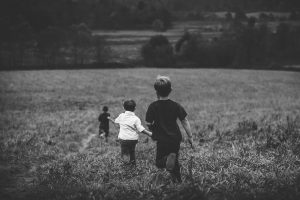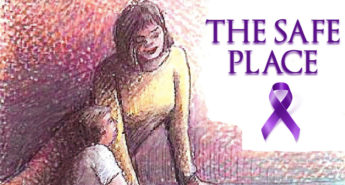 More than 15 million children live in a house where domestic violence has occurred at least once. This could be that the parents were being abused and the child was just exposed to the violence, or it could be that the child is also being abused. Whichever the case may be, these children have higher risks and are affected certain ways because of the violence they were exposed to. In this two part blog, I am going to talk about how different age groups of children are affected by domestic violence. For today, I am going to focus on the affects on younger children.
More than 15 million children live in a house where domestic violence has occurred at least once. This could be that the parents were being abused and the child was just exposed to the violence, or it could be that the child is also being abused. Whichever the case may be, these children have higher risks and are affected certain ways because of the violence they were exposed to. In this two part blog, I am going to talk about how different age groups of children are affected by domestic violence. For today, I am going to focus on the affects on younger children.
According to New South Wales Government, children in utero have the potential to be harmed while their parents are exposed to domestic violence. This could be that the father is being physically abusive towards the mom and may even punch her stomach to ensure damage to the baby. Another effect they may be exposed to is drugs or alcohol. It is common to see people who are victims of DV (domestic violence) to turn to drugs or alcohol to cope with their stress and anxiety. If a pregnant woman decides she needs to do these things to cope, she is putting the baby at a huge risk. Once the child is born, if the violence continues, they may have difficulty developing proper attachments to their caregivers and family members. If the violence is extreme, they may also suffer from failure to thrive and become very developmentally delayed.
As we continue on to older children, preschool aged children start to experience more side effects. For instance, according to the Office on Women’s Health, children in this age group that witness domestic violence may start acting like a younger child and start wetting their clothes or beds again, they may cry more or start sucking their thumbs again, they may show more fear and separation anxiety that leads to not wanting to sleep in their own room, or they may even begin stuttering. A child may also have a decrease in appetite. This is also linked to the fear and anxiety.
Depending on the exposure the children have had and how long it has gone on, they can also experience excessive worry, fear or guilt. They may think what is going on is their fault and that the abusive parent does not love them. This is especially true when parents are more irritable and less involved in the child’s upbringing. This could be due to parent’s depression or the abusive parent just not wanting to spend much time with the child.
If you have been a victim of domestic violence and there are children involved, it is not too late to get out and help them avoid these problems. For help, call The Safe Place at 501-354-1884, our crisis line at 1-888-554-2501, or our Perryville office at 501-889-2030 for more information. Our lines are staffed 24/7.
Click here to read Effects of Domestic Violence, Part 2: Teens
References:
https://www.facs.nsw.gov.au/domestic-violence/about/effects-of-dv-on-children




Leave a Reply